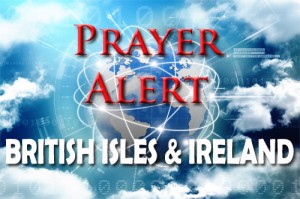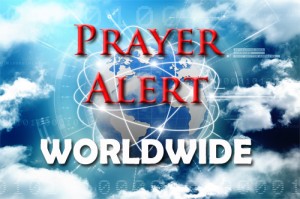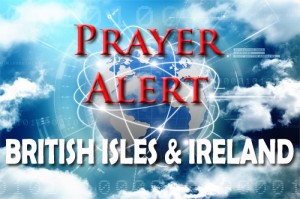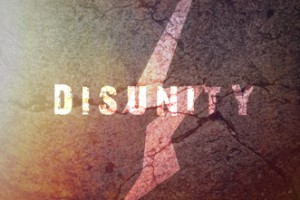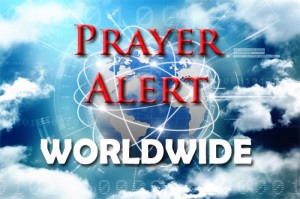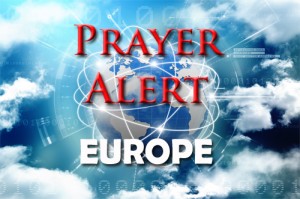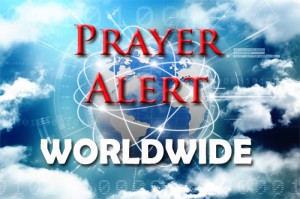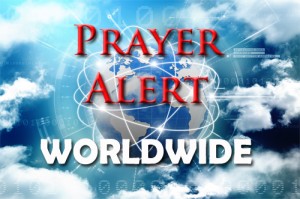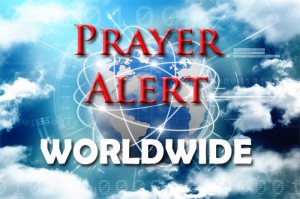Displaying items by tag: Donald Trump
Bishop attacks Trump and ‘Christian Right'
The Bishop of Leeds, Nick Baines, has launched a scathing attack on the 'narcissistic amorality' of 'lying' Donald Trump, along with the American 'Christian Right' for failing to recognise the president's traits before he was elected last November. This assault on Trump and his evangelical backers was in a blog written in the wake of violence by white supremacists in Charlottesville, which Trump failed specifically to condemn on two occasions. But the blog goes broader than Charlottesville; it charts Trump's 'consistent' positions on domestic and international areas including North Korea, Russia and Nato. Bishop Baines blames what he calls the 'Christian Right' for failing to see this disastrous presidency coming. ‘His misogyny, amorality, financial track record, sexual behaviour, narcissism and nepotism would have ruled out the candidacy of any other semi-reputable politician for the presidency of the USA.’
Trump's sabre-rattling, but North Korea has nothing to lose
Donald Trump said the US would consider any lever, diplomatic, economic or military, to forestall North Korea’s nuclear ambitions and tweeted, ‘North Korea is looking for trouble.’ But experts say Pyongyang’s latest missile launch has underlined the futility of his efforts to bully Kim Jong-un into abandoning his nuclear ambitions. ‘There is a problem with playing the military threat card with North Korea because they are inclined to call the bluff,’ said John Delury, a North Korea expert in Seoul. ‘I’m not saying they tested because of the threats. But bringing a naval strike group doesn’t help if your goal is to put off a test. If anything you are increasing the odds.’ Delury added that sabre-rattling rhetoric and erratic use of force would only strengthen Kim’s determination to develop a nuclear deterrent to spare him the fate of Saddam Hussein or Muammar Gaddafi.
London mayor accused of double standards
Ex-UKIP chief Nigel Farage has accused London mayor Sadiq Khan of hypocrisy for attacking US President Trump’s travel ban while inviting ambassadors from countries which refuse entry to Israeli citizens. At a meeting in City Hall on Tuesday night, Khan condemned Trump’s so-called ‘Muslim ban’ for being a ‘cruel, prejudiced and counterproductive’ policy. Also present at the reception were diplomatic representatives from eleven of the sixteen countries which do not allow entry to Israelis. Farage took to Twitter to call the London mayor a hypocrite. However, LSE professor and Middle East expert Fawaz A Gerges told the Independent that the two situations are totally different. ‘Trump’s ban is a Muslim ban, based on religious discrimination and racial discrimination. The relationship between Israel and its Arab neighbours is one of war since 1947 - for the last 70 years. By trying to force comparison, it just flies in the face of reality, it’s apples and oranges, sky and sea,’ he said. ‘What Trump has done has undermined America as a moral voice in the world.’
The Disunited States
America and new President Donald Trump has been hitting the news headlines repeatedly in recent days. He lost the popular votes but won a majority of States through the electoral college system. America was deeply divided under President Obama and remains so under President Trump. It is not simply a political divide, there are divides across the age groups, rural voters v city voters and deep divisions on ethnic lines.
From a Christian perspective we believe unity is high on God’s agenda. Many American cities are working hard to bring the churches together so people around them see one body. Globally we believe there is a spiritual special relationship between the USA and the UK. We are both called to take the gospel to the world.
So at a time when Christians are arguing vehemently on Facebook and Twitter that Donald Trump is the Lord’s anointed, and others that he is just plain dangerous, we recommend three pray points:
- God bless America - we believe America has a key role in showing and communicating the gospel and we pray for God’s hand on its government and President - give them wisdom and may God’s will be done.
- God strengthen our links - at a time of great disagreements we pray the UK and USA might stand together as servants, ready to do what you call us to do.
- Bring healing - the disagreements are so fierce but God says He wants His church to be one so that the world will know Him. Disunity is the enemies strategy. Lord, we pray for the Holy Spirit miracle of unity, heal the hurts, enable your people to disagree but stand together.
Disturbing Geopolitical Situations for Watching over in Prayer
Thanks to Robert Maginnis who maintains a vigilant watch over world security issues, here are some serious, worrying situations that intercessors need to keep on the front-burner of our hearts in intercession. They come from his IRAQ-SYRIA UPDATE during this last month of January. Please do read and pray through these potential and developing threats to the security and peace of our world. The prayers of many provide a spiritual shield of protection over the nations:
Nuclear War Danger
Doomsday Clock advances closer to midnight. The New York Times reports the Bulletin of the Atomic Scientists on Thursday moved the clock 30 seconds closer to midnight. It attributes that change to the global security landscape and especially to President Trump’s statements and actions it labels “unsettling.” Specifically, the report sites Mr. Trump’s comments about expanding and even deploying the American nuclear arsenal and his alleged “propensity to discount or reject expert advice related to international security.”[i] Note: I’m not surprised by the Times’ echoing this observation because it fits the paper’s anti-Trump agenda. Fact is the clock can be moved closer to midnight because North Korea is on the cusp of having a credible nuclear-tipped ballistic missile; Iran continues to pursue a similar capability; China continues to invest in survivable nuclear systems and Russia, our primary nuclear adversary, has poured billions into new ballistic missiles systems and modernizing the world’s largest atomic arsenal. Mr. Trump, unlike Obama, is not putting his head in the sand. The world is far more dangerous today than any time sense the end of the Cold War and Mr. Trump sees this and intends to close the gap to make America safer.
China
Chinese warn Trump not to end one China policy. Reuters reports the state-run tabloid Global Times warned Mr. Trump that Beijing would “take revenge” if the new president reneges on the one-China policy. Evidently Taiwan President Tsai Ing-wen met with senior U.S. Republican lawmakers during her stopover in Houston on Sunday en route to Central America. China had asked the U.S. not to allow Tsai to enter or have formal government meetings under the one China policy. Beijing considers self-governing Taiwan a renegade province ineligible for state-to-state relations.[i] Note: Count on Beijing to quickly test the new president’s mettle either in the South China Sea or vis-à-vis North Korea.
Trump’s State nominee’s confirmation statement earns Chinese warning of war with the U.S. The London Telegraph reports blocking Chinese access to islands in the South China Sea would require the U.S. to “wage war,” a Chinese state-run paper said on Friday in the wake of testimony by Mr. Trump’s nominee for Secretary of State suggested such a strategy. The escalation in harsh rhetoric comes after Beijing warned the president-elect not to welcome engagement with Taiwan’s leader, Tsai Ing-Wen. Rex Tillerson, Mr. Trump’s nominee for State, told his confirmation hearing that he wanted to send a signal to China that their access to islands in the disputed South China Sea “is not going to be allowed.” He continued that the U.S. would have to “wage a large-scale war” in the South China Sea to prevent Chinese access to the Islands.[ii] Note: I predict in Future War that the next major world war will take place in the Asia arena and it will involve both the U.S. and China either as adversaries or parties that seek to find accommodation to prevent the spread of hostilities.
North Korea
Trump threatens to down North Korean ICBM. The Military Times reports President-elect Trump will face a defiant North Korea early in his administration. North Korea is talking about launching a newly perfected intercontinental ballistic missile and unnamed U.S. officials in Washington indicate that if Pyongyang launches a missile that threatens American territory it will be shot down. The exchange in the news suggests Pyongyang and the incoming U.S. administration are feeling each other out ahead of the 20 January inauguration. What’s not in question is the fact the North Koreans have nuclear weapons and a growing ballistic missile capability. However, there is question among intelligence officials whether Pyongyang has mastered miniaturizing nuclear warheads to fit atop ballistic missiles.[iii]
Trump foreign policy crisis on front burner: Pyongyang likely has enough for 10 plutonium bombs. North Korea is believed to have some 50 kg of weapons-grade plutonium, or enough to make 10 nuclear bombs, according to the South Korean Defense Ministry’s 2016 defense white paper, which was released Jan. 11, Yonhap reported. Seoul’s last defense white paper, released at the end of 2014, estimated that the North had around 40 kg of plutonium. Pyongyang has also made significant advancements in its ability to miniaturize a nuclear warhead, as well as its ability to enrich uranium, according to the paper.[i] Note: The regime also has enriched uranium, ballistic missiles and miniaturized warhead technology. Expect Mr. Trump to face a crisis with Pyongyang early in his administration.
Middle East
Iraqi forces gain more ground in eastern Mosul. Reuters reports Iraqi special forces made more advances against ISIS in Mosul, pushing the jihadi from another eastern district and edging closer to the city center. Meanwhile, Mosul residents trickled out of the hot zone while others returned to their homes as their areas were retaken from ISIS. ISIS jihadists have fought fiercely with car bombs, snipers operating from a network of tunnels embedded in Mosul’s civil population. The battle will likely continue for months in spite of recent progress.[vi]
2016 bloody year for Iraq. The Washington Post reports violence and military operations in Iraq last year claimed 16,000 civilian lives, making it one of the deadliest years since the 2003 U.S.-led invasion. A report by the London-based Iraq Body Count reported that 16,361 Iraqi civilians died in 2016 and a plurality were killed in the province of Nineveh, the home of Mosul which was captured in 2014 by ISIS.[iii]
Syrian dictator ready to talk. Reuters reports even though the truce brokered by Russia and Turkey is showing significant strains, Syrian President Bashar al-Assad claims he is ready to negotiate on “everything” at peace talks his Russian allies hope to convene in Kazakhstan, including his own position within the framework of the Syrian constitution. However, Assad insisted any new constitution must be put to a referendum and it was up to Syrians to elect their president.[viii]
Syrian rebels participate in Russian, Turkish-backed peace talks in Kazakhstan. Reuters reports Syrian rebel groups will attend peace talks backed by Russia and Turkey in Kazakhstan. Moscow set the diplomatic effort in motion after Syrian rebels suffered a major defeat at the hands of regime forces. The U.S., which led failed efforts to launch peace talks last year, has not been involved in the latest peace effort.[vii]
Iran ready to receive fresh shipment of natural uranium. Iran is preparing to receive a reported 116 metric tons of natural uranium from Russia as compensation for exports of heavy water, anonymous diplomats with knowledge of the upcoming shipment said, AP reported Jan. 9. The United States and five other major powers that reached a nuclear deal with Iran in 2015 agreed to the shipment, the first since the historic accord came into effect, according to the diplomats. Though Tehran has not explicitly outlined its plans for the delivery, the International Atomic Energy Agency will monitor any natural uranium shipments to Iran for 25 years after the start of the deal.[ix]
South Asia
Pakistan test-fired first submarine-launched cruise missile. Pakistan's military test-fired the country's first submarine-launched cruise missile on Jan. 9, Reuters reported. With a reported range of 450 kilometers (280 miles), the Babur-3 missile represents a credible second-strike capability for Pakistan, a statement from the Pakistani military said. Test-firing the nuclear-capable missile is likely to ramp up tensions with neighboring India; the two adversaries are locked in a years-long arms race in which each country views military advances by the other as a direct threat to its security.[xi]
Trump faces a central Asia conflict; India, Pakistan neck-and-neck in nuclear race. The nuclear race between India and Pakistan is intensifying, thanks in large part to Islamabad's fear that its military is starting to lag behind New Delhi's. Over the past decade, Pakistan has become alarmed by the widening gap between its ability to wage conventional war and India's. Pakistan has turned to its nuclear inventory to level the playing field. But in doing so, Islamabad has spurred its nuclear competition with New Delhi forward even faster, a rivalry that culminated in Pakistan's Jan. 9 test-fire of the Babur-3 submarine-launched cruise missile. The test of the sea-based nuclear-capable weapon was the first of its kind in Pakistan, underscoring the country's investment in mitigating the threat looming on its eastern border. But as Islamabad takes steps to bolster its nuclear deterrent, New Delhi will almost certainly follow suit, each state engaging in a dangerous contest to stay one step ahead of the other. Warning: Pakistan’s decision to rely on nuclear weapons to deter India increases the likelihood of nuclear war in South Asia. Pakistan’s recent sea-based nuclear test demonstrates an alarming pattern of posturing between the two nuclear powers.
Pakistan’s North Waziristan “Epicenter” of global terrorism. The Voice of America reports the US commander of international forces in Afghanistan recently visited Pakistan’s North Waziristan which many experts condemn as the “epicenter” of global terrorism. General John Nicholson, commander of NATO’s Resolute Support mission on counterterrorism operations, visited the Pakistan region as part of his effort to work with Pakistan’s military chief, General Qamar Javed Bajwa, who promised cooperation to target al-Qaeda, the Taliban and the Haqqani Network which operate in the region.[vii]
Taliban kill more than 30 in Kabul. Reuters reports a Taliban suicide attack near the Afghan parliament in Kabul killed at least 33 people and wounded another 70. The Taliban spokesman said “We planned this attack for quite some time and the plan was target some senior officers of the intelligence agency. We sent one suicide bomber to target a minibus that was carrying these officers,” the spokesman said.[viii]
Taliban buy American arms from Afghan ally. The Washington Free Beacon reports Taliban jihadi in Afghanistan have been purchasing U.S.-supplied weapons and ammunition from Afghan army and police forces. A U.S. government report indicates just 63% of Afghanistan is under allied control, despite billions in military aid and meanwhile that country is experiencing an increase in violence. Evidently, according to the report, Afghan security forces are selling their American-supplied weapons to their Taliban enemies.[viii]
Russia
Trump’s State and Defense nominees speak frankly about Russian threat. The Guardian reports that Trump’s defense nominee retired Gen. James Mattis said at his confirmation hearing the West should recognize the reality that Russian President Putin is trying to break NATO and Trump’s State nominee, Mr. Rex Tillerson, described Russia’s annexation of Crimea “as an act of force” and said that when Russia flexed its muscles, the U.S. must mount “a proportional show of force.” Of course in response to Russian aggression in Eastern Europe the U.S. and NATO allies have steadily increased air patrols and training exercises across the region. At this time troops from the Third Armor Brigade Combat Team, 4thInfantry Division, based in Fort Carson, Colorado, are moving from the U.S. to Germany and then railing to Poland with their 87 tanks and 144 other armored vehicles. This move has the Russians’ attention and drew their criticism.[i] Note: The Obama administration began its eight year run with a Russian reset. It would appear the Trump administration is setting the stage for a serious re-evaluation of our relationship with Russia that at this point appears more confrontational.
Robert Maginnis, This email address is being protected from spambots. You need JavaScript enabled to view it.
USA: Trump’s inauguration
The inauguration of Donald Trump as President of the United States of America took place in Washington, watched by tens of millions around the world. His speech was full of rhetoric and confirmed many of his aims mentioned in the campaign leading to his presidency: America First, never let you down, trade deals changing, Mexico wall, anti-terrorism. Think big, dream bigger. Franklin Graham, son of Billy Graham, before reading a passage from 1 Timothy, said: ‘Mr President, in the Bible rain is a sign of God's blessing. It started to rain, Mr. President, when you came to the platform. It's my prayer that God will bless you, your family, your administration, and may He bless America.’ We will wait to see when the rhetoric becomes reality and what priorities President Trump sets. One of his first actions was a memorandum designed to move forward the controversial Keystone XL and Dakota Access pipelines. See:
Lithuania: preparing for potential Russian invasion
Lithuania has been investing in defence, introducing conscription, and rebuilding a standing army in preparation for the worst. It may have started well before the prospect of a Donald Trump presidency, but has now become a matter of urgency, with the country preparing to erect a six-foot razor-wired fence between them and Russia. The country fears Russian aggression, two years after Putin invaded Ukraine and annexed Crimea. With a US president who has sowed doubt in the country's NATO commitments, Lithuanians are concerned that they could see an echoing of the events of January 1991 when, in the course of three days, the Soviet Union tried to take back control of the country just one year after it declared independence. Meanwhile, across the border, President Putin has reinforced the garrison and sent missiles capable of carrying nuclear warheads. In response, Lithuania will build its fence. In 2002, President George Bush said: "Anyone who would choose Lithuania as an enemy has also made an enemy of the United States of America," but Lithuanians are unsure if that will remain true after Donald Trump. See also: http://prayercast.com/lithuania.html
World watches Trump’s inauguration
As Donald Trump is sworn in today as the 45th President of the USA, there is huge uncertainty and concern in many different countries. Some fear that he will be far too influenced by President Putin, for example on easing sanctions on Russia, making a deal on Syria, and settling the Ukraine issue. Relations with Mexico are set for a downturn because of Trump’s plans to build a wall along the border and to deport illegal Mexican immigrants. Palestinians fear that he will pursue a pro-Israeli policy, while others hope for a more active US role in the Middle East than under Obama. Europe will want to see whether Trump’s negative remarks about NATO and the EU translate into a change in policy, and countries such as China and South Africa will wonder if Trump will impose tougher conditions on new trade deals. All over the world, people will watch and wait to see what kind of president we will have for at least the next four years.
Middle East: the year ahead
2017 is set to be fraught with challenges for the people of the Middle East, Christian and Muslim alike. A brief summary: 1) Iraq will remain precarious, even though the battle to retake Mosul is making progress: Shiite-dominated rulers in Baghdad face conflict with an unwilling Sunni minority. 2) Turkey’s stability is threatened by challenges from IS and from Kurdish militants, who have killed some 1,000 Turkish soldiers in the last two years. 3) There are hopeful signs in Iran, though changes could be slowed by the death of former President Rafsanjani and the expectation of more hostile US policies under Donald Trump. The poor health of supreme leader Ali Khamenei might mean a potential leadership change soon, which could have serious implications for the entire region. 4) The mood in Syria seems to be turning towards a ceasefire and acceptance of Assad staying on as president, at least in the short term. 5) Egypt is expected to see new protests and tensions with continued terrorism, and the economy will remain the number one challenge. The whole region remains in much need of continuing prayer: yet every challenging phase is also a chance for Christians to rise up as salt and light, and to offer reconciliation and restoration where they are desperately needed.
Two problems for Trump
The director of the US office of government ethics has criticised Donald Trump's plan to hand control of his business empire to his sons before his inauguration next week. Walter Shaub said that the plan does not match the standards of US presidents over the last forty years, and would not remove conflicts of interest. ‘Every president in modern times has taken the strong medicine of divestiture’, he said, referring to a process whereby Mr Trump would sell off his corporate assets and put the profits into a blind trust run by an independent trustee. The Trump Organisation is an umbrella company for his hundreds of investments in real estate, brands and other businesses. Another problem for the president-elect is the huge and very public rift between himself and the US intelligence community, over its recently-published conclusion that the Kremlin sought to support Trump’s election. Neither side is likely to back off and both may come out damaged. See:
